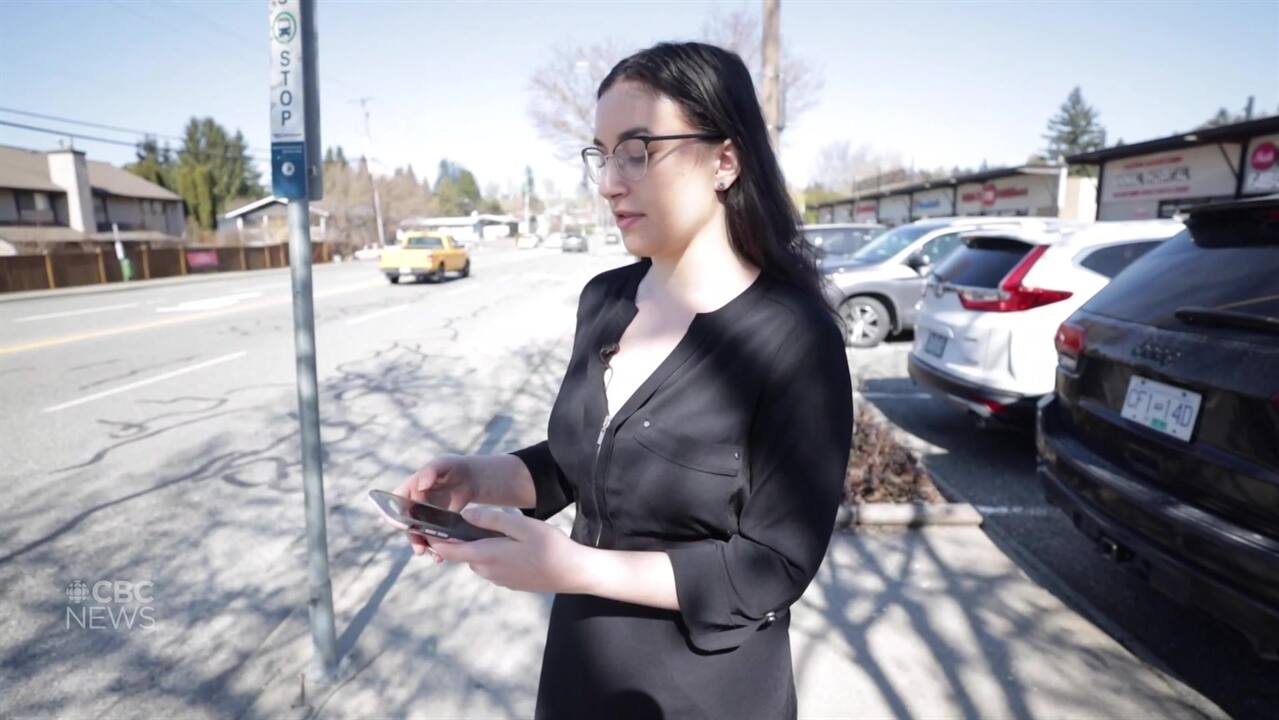Fraser Valley residents relieved as transit service resumes after 124-day strike | CBC News

[ad_1]
Residents of the Fraser Valley were relieved they could once again catch the bus on Sunday, as transit service returned following a four-month drivers’ strike that left swaths of the region without a ride.
All transit service in the region has been made free for the month of August, which riders said was a welcome gesture after the disruption.
Getting on the bus in Abbotsford on Sunday “felt surreal and it felt like a blessing,” said Steven, a frequent transit rider who has a developmental disability.
“The bus is a good outlet for me to be out with people, to live life, to get places,” he said. Steven, who did not provide a last name, said he might ride around for a couple of hours Sunday afternoon to enjoy being out and about again.

Another transit rider, Jeffrey James, said the strike had made it “tough” for him to get around.
“I’ve basically been walking around, taking cabs,” he said.
Public transit in Abbotsford, Chilliwack, Harrison, Agassiz, Hope and several smaller communities had been on hold since March 20. Some HandyDart services were deemed essential and did not cease.
The strike ended on July 21 when more than 200 workers ratified a new six-year deal with First Transit, the private U.S. company sub-contracted by B.C. Transit.
At 124 days, the strike was the second longest transit strike in B.C.
Full HandyDart service resumed a week earlier, on July 31.
The transit strike gripping the eastern Fraser Valley is having a big impact on people, from university students to those with low incomes. The CBC’s Yasmine Ghania spent the day in Abbotsford, calculating how much it would cost to get around the city without a car.
For-profit contractor prolonged strike: expert
But even as regular bus service resumes, drivers and one expert say larger issues posed by the privatization of public transit still loom.
Workers went on strike to call for higher wages in line with nearby municipalities, a pension and better scheduling practices from First Transit.
The parties didn’t reach an agreement until the province called in a mediator to intervene.
CUPE Local 561 said last week that the six-year contract includes higher wages and a pension, but no details have been released.
“This is how we took a stand and we feel bad for the public to have to go through this but we’re happy to be back,” said Bob, a transit driver in Abbotsford who declined to give his last name.
“Hopefully this exposes to the public how much of our taxpayer money goes out of the country and then the workers of our communities get low pay.”

From aboard his bus on Abbotsford on Sunday, driver Kheireddine Boubrin said the workers got most of what they wanted, but nothing is ever perfect.
“So far, the people are happy to see us back and we are happy to see them as well,” he said.
John-Henry Harter, a lecturer in labour studies at Simon Fraser University, says the strike wouldn’t have lasted so long if B.C. Transit ran the service itself.
Instead, the province sub-contracted out transit to a company that is incentivized to maximize profits rather than provide reliable and essential service to communities, he said.
“We’re allowing a private for-profit multinational international corporation to run our bus services in British Columbia,” said Harter, referring to France-based Transdev, which owns First Transit.
“That’s why they made the strike drag out for four months [for] the poor people in the Fraser Valley, and … vulnerable people who rely on bus services.”
The province should have intervened sooner to end the strike, said Harter, and should use the next six years to plan to operate transit service itself.
“We need to run it ourselves and not allow a foreign corporation to skim profit off the top of our public services,” he said.
On July 19, a First Transit spokesperson told CBC the company was “eager for the strike to end and for service to be promptly restored for our customers in the Fraser Valley.”
When the strike ended, the company said it was working with maintenance staff to begin service “as early as possible,” the spokesperson said on July 22.
“The patience of our customers is appreciated, and we can’t wait to see you on board Fraser Valley Transit,” he wrote.
Despite the disruptions, riders say they understood why drivers were striking.
“They deserve more money. They’ve done a good job,” said Steven.
[ad_2]
